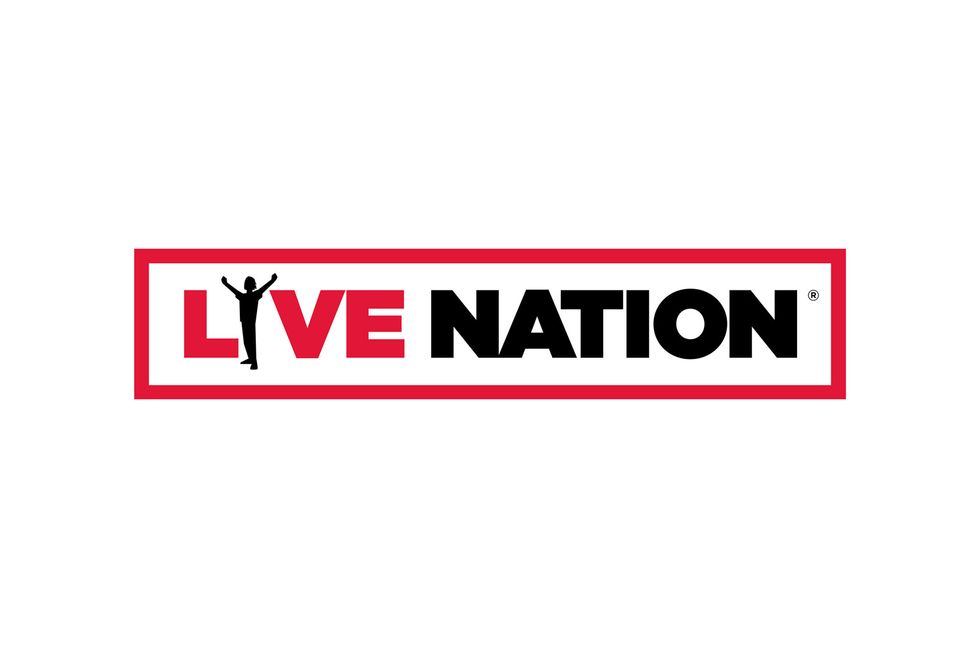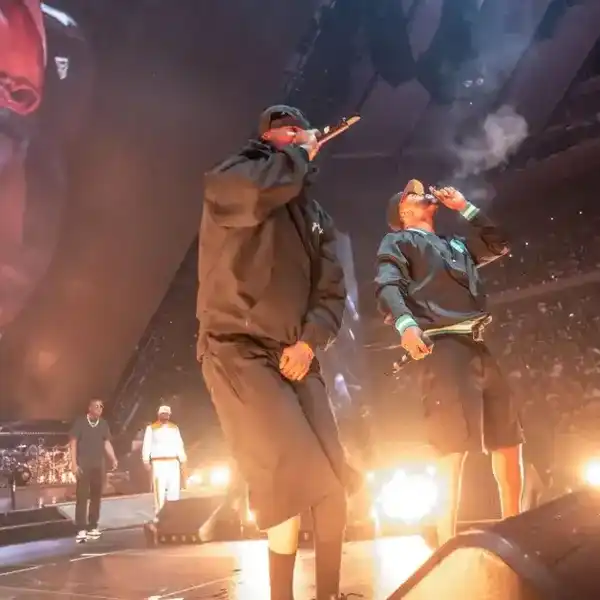Live Nation Hit With DOJ Antitrust Lawsuit: ‘It’s Time to Break It Up’
"We allege that Live Nation controls the live entertainment industry in the United States because it is breaking the law," said Attorney General Merrick Garland.

Attorney General Merrick Garland speaks during a news conference at the Department of Justice Building on March 21, 2024 in Washington, DC.
The U.S. Department of Justice and a group of 30 states on Thursday filed a long-awaited antitrust lawsuit against Live Nation, accusing the concert giant of market dominance and demanding that it and Ticketmaster be broken up. “It is time to break it up,” said Attorney General Merrick Garland at an announcement on Thursday.
The lawsuit, filed in Manhattan federal court, claims that Live Nation has abused its huge market power to stifle competition, including through the use of exclusive ticketing contracts that lock venues into using Ticketmaster for all events. As part of its case against Live Nation, Garland said the government will present evidence taken from emails between Live Nation chief executive Michael Rapino and Oak View Group chief Tim Leiweke, as well as communications between Rapino and the head of powerful equity firm Silver Lake capital.
“We allege that Live Nation has repeatedly wielded its powers to keep its rivals from expanding in the U.S. concert promotions market through threats and retaliation,” Garland said. In his remarks, he alleged that in 2021, Live Nation threatened to retaliate against Silver Lake unless it divested from TEG, one of its portfolio companies. According to Garland, Live Nation chief Michael Rapino told Silver Lake that he “failed to understand why [the equity firm] continued to invest in a business that competes with Live Nation.”
Garland added: “The threats ultimately succeeded and Silver Lake has tried to sell TEG altogether. We allege that Live Nation does not maintain its dominance in the live industry by staying ahead of its competition on the merits. It does so by unlawfully eliminating its competition. We allege that Live Nation controls the live entertainment industry in the United States because it is breaking the law.”
To address the alleged violations, the DOJ argues that Live Nation must divest ownership of Ticketmaster – effectively undoing a controversial 2010 merger that was approved by federal regulators despite fears that it would give the company too much power over live music.
“Today’s complaint alleges that Live Nation-Ticketmaster have engaged in anticompetitive conduct to cement their dominance of the live concert market and act as the gatekeeper for an entire industry,” said Deputy Attorney General Lisa Monaco during today’s press conference. “Today’s action is a step forward in making this era of live music more accessible for the fans, the artists, and the industry that supports them.”
Live Nation has long faced criticism over its market share, but scrutiny of the company increased dramatically following the disastrous November 2022 rollout of tickets for Taylor Swift’s 2023 Eras Tour, which saw widespread service delays and website crashes.
The DOJ had already launched an investigation into the company’s practices earlier in 2022, prior to the Swift incident. But the botched presale sparked Congressional hearings, civil antitrust lawsuits, and calls to break up the company. Lawmakers like Sen. Amy Klobuchar (D-Minn.), the chair of the Senate subcommittee for antitrust issues, warned that Live Nation’s power “insulates it from the competitive pressures that typically push companies to innovate and improve their services.”
According to the 120-page complaint filed by the government, Live Nation-Ticketmaster has “unlawfully maintained monopolies in several concert promotions and primary ticketing markets and engaged in other exclusionary conduct affecting live concert venues, including arenas and amphitheaters.”
The complaint specifically takes aim at Live Nation’s “flywheel model,” which it describes as a “self-reinforcing business model that captures fees and revenue from concert fans and sponsorship, uses that revenue to lock up artists to exclusive promotion deals, and then uses its powerful cache of live content to sign venues into long term exclusive ticketing deals, thereby starting the cycle all over again.”
Live Nation has rejected such accusations. In a blog post last month, the company’s top antitrust lawyer argued that claims about “monopolies” were designed to “rile up fans against Live Nation and Ticketmaster.” As recently as Tuesday, company president Joe Berchtold said that the company’s practices were “fully defensible” and that a settlement with the DOJ was still possible.
“The DOJ’s lawsuit won’t solve the issues fans care about relating to ticket prices, service fees, and access to in-demand shows,” a statement from Live Nation reads. “Calling Ticketmaster a monopoly may be a PR win for the DOJ in the short term, but it will lose in court because it ignores the basic economics of live entertainment, such as the fact that the bulk of service fees go to venues, and that competition has steadily eroded Ticketmaster’s market share and profit margin. Our growth comes from helping artists tour globally, creating lasting memories for millions of fans, and supporting local economies across the country by sustaining quality jobs. We will defend against these baseless allegations, use this opportunity to shed light on the industry, and continue to push for reforms that truly protect consumers and artists.”
When Live Nation and Ticketmaster merged in 2010, the DOJ approved the deal but imposed a so-called consent decree designed to prevent the company from abusing its position. Those restrictions were set to expire in 2020, but they were extended by five years after the DOJ accused Live Nation of repeatedly violating the decree.

















